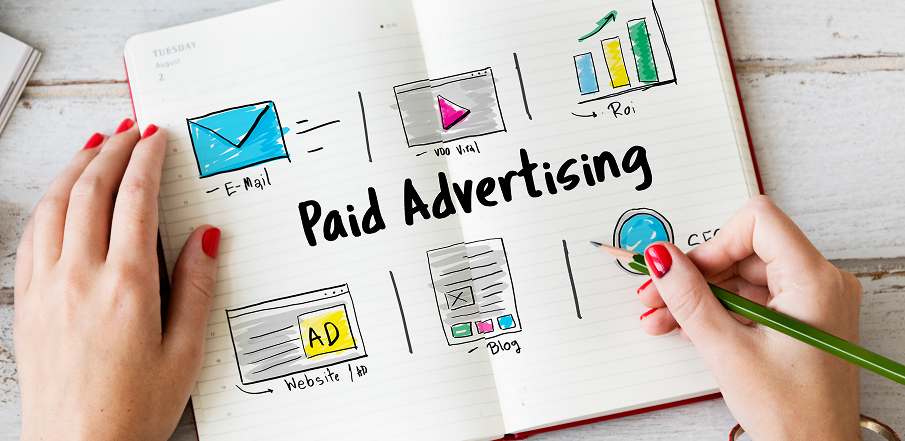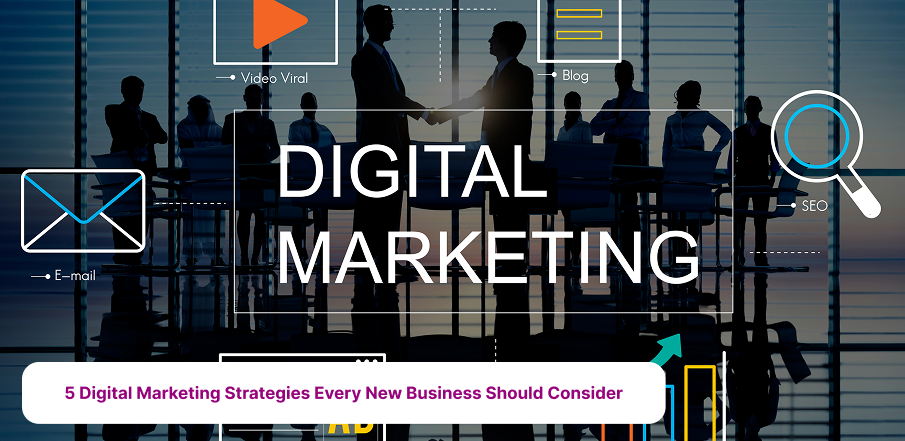In the modern world of online competition, small businesses can no longer rely totally on word of mouth. If you own an online shop or a local service firm or a tech start-up with a strong digital marketing plan is vital to grow. The best part? There is no need for a massive budget to achieve outcomes. With the right combination of strategies, you will boost visibility, get top-quality leads, and ultimately convert more customers.
These are the top five strategies for digital marketing that every small business should implement, with practical suggestions to make sure you are successful.
1. Search Engine Optimization (SEO) – The Foundation of Online Success
If your customers aren’t able to locate your website through Google and other search engines, you are missing out on profitable prospects. . SEO Search Engine Optimization (SEO) is one of the most effective tools that small businesses can use to increase organic traffic.
Some proven SEO strategies include:
- Keyword Optimization – Identify long-tail keywords, such as “affordable web creation services” and “best mobile app development for small-sized businesses.”
- Local SEO Claim and enhance the details of your Google Business Profile to rank in “near me” search results.
- Technical SEO – Enhance speed on your website mobile responsiveness and protect your website by implementing SSL.
Content SEO – Create blogs, guides, or case studies that are optimized for the search engine’s intent.
Pro Tip: Track regularly your performance with free tools such as Google Analytics and Google Search Console to discover new keywords.
2. Content Marketing – Building Authority & Trust
Content is the king” However, data-driven, engaging content is what can help small-scale enterprises grow. Through content marketing, you are able to help your customers learn, increase trust, and boost SEO rankings while doing it.
Effective formats for content include:
- Posts on blogs (like this!) to help you find keywords and respond to customer queries.
- Tutorials and videos on platforms like YouTube, Instagram, or TikTok.
- Infographics that are easy to share, visually content.
- Case studies that highlight your successes with developing mobile apps.
In conjunction together with SEO, the use of content can provide the long-term viability of your website.
A tip to reuse a piece of content in multiple formats (blog video, infographic, or blog) to get the most exposure.

3. Social Media Marketing – Where Your Customers Hang Out
With more than 4.9 billion users around the world Social networks aren’t an option for small-sized companies. Platforms such as Instagram, LinkedIn, Facebook and TikTok enable you to direct connect with your targeted customers, increase brand recognition and increase sales.
Here’s how to make your social media work for your company:
- Be aware of your target audience. B2B companies can thrive on LinkedIn and lifestyle brands are more successful with Instagram or TikTok.
- Consistent branding – Make use of professional UI/UX design for landing pages, graphics and posts to establish confidence.
- Engage in a proactive manner – Respond to comments, reply to queries and promote the creation of content by users.
- Make use of paid advertisements Social media advertising allows specific targeting, giving small businesses instant exposure.
LinkedIn is an excellent way to communicate with decision-makers. Additionally, businesses selling online can make use of Instagram shops as well as Facebook ads to increase conversions.

4. Email Marketing & Automation – Nurturing Relationships
Marketing via email has an impressive ROIs for digital marketing, averaging $42 per $1. Small businesses can benefit from it as an economical way to stay in touch with your customers, increase loyalty and boost sales.
Effective email strategies for high-quality emails include:
- Thank you Emails: Introduce the brand and offer services such as web design or app for mobile development potential customers.
- Abandoned Cart Reminders: ideal for businesses selling online to recover lost sales.
- Newsletters – Provide valuable information, tips and special offers.
- AI-powered Personalization – With AI integration tools it is possible to provide customized product recommendations and other content.
Pro Tips: Segment your target audience according to their the way they behave (purchases or interests, interaction) to send targeted emails that are converted.

5. Paid Advertising – Quick Visibility & Conversions
While organic strategies can take time while Paid advertising (PPC) provides immediate results. Small-sized businesses can use Google Ads, Facebook Ads or LinkedIn Ads using targeted campaigns that are targeted to the right target audience.
Tips for ensuring success of advertising campaigns:
- Create clear Goals: Are you driving visitors, producing leads, or increasing sales?
- Make smart use of the location, demographics, as well as the ability to target based on your interests.
- Design strong landing pages – By using a skilled UI/UX designer make sure your advertising will convert.
- Test and Optimize – Perform A/B tests for headlines, visuals, as well as CTAs.
Paid advertisements are most effective when coupled along with content marketing, SEO. For instance an organization that develops software could use ads to advertise the case study, while SEO guarantees long-term search engine rankings for keywords related to the case study.

Final Thoughts
Digital marketing doesn’t require doing everything at onceit’s about deciding on the most effective strategies that go with your goals for business. By focussing on SEO and content marketing, as well as email automation, social media and paid advertisements small-scale businesses can create an online presence that is strong and sustainably grow.
Are you ready to grow your small-scale company? Begin by enhancing your website, creating quality content, and using AI-powered tools to keep you ahead of your rivals. If you have the right approach your company won’t only be able to survive, but thrive in the age of digital.
FAQ:
Why is digital marketing important for small businesses?
Digital marketing is essential for small companies because it allows them to reach out to a larger audience at less cost than traditional marketing. Through strategies such as SEO and social media as well as email marketing, small-sized businesses are able to compete with larger businesses and increase brand recognition.
How does digital marketing help small businesses grow?
Digital marketing helps small businesses grow by increasing the visibility of their websites, attracting new customers, and generating sales. With targeted campaigns like paid advertisements, content marketing as well as local SEO, companies are able to reach out to the right people and expand more quickly.
What are the best digital marketing strategies for new businesses?
The best digital marketing strategies for new businesses include:
- Search Engine Optimization (SEO)
- Social Media Marketing
- Content Marketing
- Pay-Per-Click (PPC) Advertising
- Email Marketing
These strategies are cost-effective and help build a strong online presence from day one.
Is digital marketing cost-effective for startups?
Digital marketing can be extremely cost-effective for small businesses. Contrary to traditional marketing, which expenses are expensive Digital marketing allows small businesses to design the budget in a way that is flexible, monitor the outcomes in real-time and improve campaigns to achieve better return on investment.
What is the first step in creating a digital marketing plan for a new business?
The first step in creating a digital marketing plan is identifying your target audience and setting clear goals. Once you know who your customers are, you can choose the right mix of strategies like SEO, social media, and PPC to achieve measurable results.

